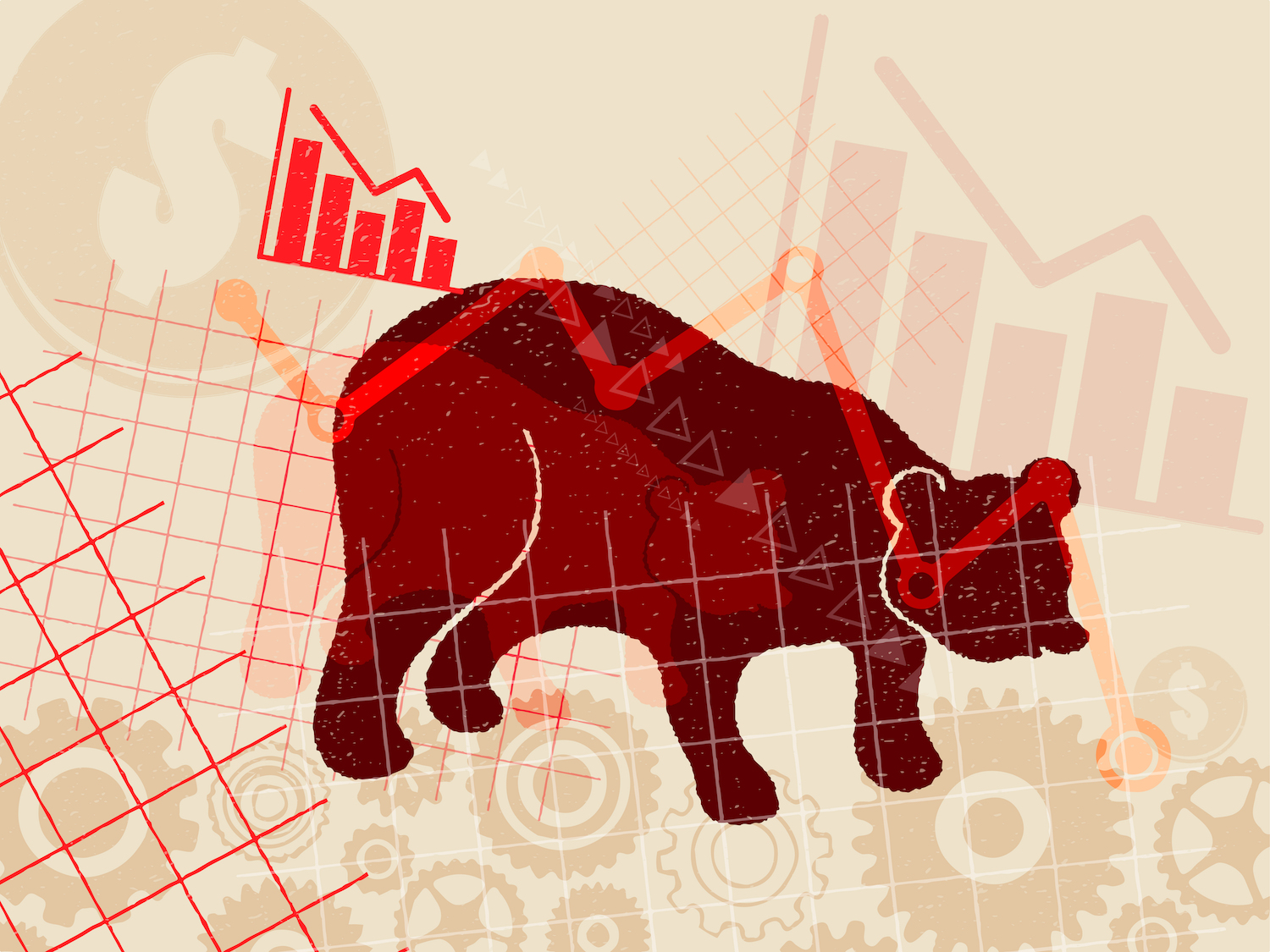Warning on risks: Financial contracts for difference are complex instruments and are associated with a high risk of rapid financial losses due to leverage. On 76.44% of retail investor accounts, financial losses occur when trading financial contracts for difference with this provider. You should consider whether you understand how financial contracts for difference work, and whether you can afford to take the high risk of suffering financial losses. Please read the Risk Disclosures.


The Bear Market of 2022: Be Smart, Be Cautious.
"We live in the most chaotic, hard-to-predict macroeconomic times in decades. The ingredients for a global recession are on the table". These were the daunting analyst notes of Seth Carpenter, which leads Morgan Stanley’s bank strategists. Inflation is at its highest in decades and macroeconomic instabilities are mounting.
This heightens the risk of an upcoming global recession, and the bear market of 2022 could be just the beginning. The global economy has been hammered down, with the majority of stocks in the United States, Europe & Asia losing a fifth of their value. That’s monumental, and quite scary to be honest. Many analysts expect a worldwide recession, and such expectations are seeming to be truer by the day. Why is this happening, you may ask? Unless you’ve been living under a rock, you may be quite aware of what’s going on in the market.
Swimming in a Sea of Red
The nitty gritty of it, is that the unpredictable spread and virulency of new COVID-19 variants, record-high inflation, a hawkish U.S. Federal Reserve stance in combating such prodigious inflation by hiking interest rates aggressively, sanctions against Russia’s oil by the European Union and other nations, increasing technological scrutiny from Chinese lawmakers and a sizeable crypto crash, all have weighed down on macroeconomic prospects for growth.
Weakening U.S. Markets
In 2022, major stock indices have been crushed. There’s no positive way to describe it. No icing on the bitter cake. U.S. markets have been hit hard due to rising inflation, causing the Federal Reserve to hike interest rates in an aggressive manner to cool down consumer prices, which has pushed the value of the greenback to 20-year highs. The big-boy Dow Jones[1] index has stumbled by 13%, the renowned S&P 500[2] index fell by 18%, and the tech-focused Nasdaq 100[3] index collapsed by 30%, since the start of the year.*
Europe is Falling Down
European markets have also been struck by lightning. The Russia-Ukraine war prompted the European Union (EU) to adopt five packages of sanctions against Russia, including economic, individual and media-related measures. The most impactful on the growth prospects of European economies are the sanctions on Russian oil, as well as record-high inflation, weighing down on investor sentiment and confidence. The German DAX[5]index declined by 16%, the French CAC 40[5] index dwindled by 15%, and the Euronext NV[6] index diminished by over 20%.*
Asia’s Market Turmoil
Asia’s Market Turmoil
Asian markets are also no exception. For the most part, the Russia-Ukraine conflict, alongside rising COVID-19 cases in the region, and increasing scrutiny and watch from Chinese lawmakers on technology-related initiatives, have all played a major role in the turmoil of Asian markets. Since the start of the year, Japan’s Nikkei 225[7] index dropped by 12%, China’s CSI 300[8] and Hang Seng[9] indices shrunk by 20% and 17% respectively, and India’s Nifty 50[10] index which tracks the value & performance of the nation’s largest 50 companies, has edged 10% lower.*
Will History Repeat Itself?
All such factors, which have been prevalent since the start of the new & optimistic year, may cause history to repeat itself. Since 1960, there have been nine bear markets. Among the most popular market downfalls are the Great Depression in 1929, the one-day stock market crash of 1987, the Great Recession of 2008 and the coronavirus crash of 2020.
For it to stand, a globally recognized bear market requires a decline of at least 20% in the renowned S&P 500 index. It wouldn’t be so bad if today’s global markets were cruising backwardly, but in fact they are rather stumbling by the week. Previous market crashes have shown us that recoveries tend be pretty quick, but this may not be the case this time. History does indeed repeat itself, but not always in an identical manner.
If you’re not an experienced trader or investor, I suggest that you be cautious before investing in the financial market at such demoralizing times. If you’re an expert which understands financial markets more deeply than the average investor, be smart with your timing. It’s generally discouraged to trade in downward-trending markets, as it’s hard to predict when it’s going to bounce back up. It’s best not to catch the knife while it’s still falling down. [1]
-------
* Past performance is no guarantee of future results.
[1] Forward-looking statements are based on assumptions and current expectations, which may be inaccurate, or based on the current economic environment which is subject to change. Such statements are not guaranteeing of future performance. They involve risks and other uncertainties which are difficult to predict. Results could differ materially from those expressed or implied in any forward-looking statements.
1 https://www.investing.com/indices/us-30
2 https://www.investing.com/indices/us-spx-500
3 https://www.investing.com/indices/nasdaq-composite
4 https://www.investing.com/indices/germany-30
5 https://www.investing.com/indices/france-40
6 https://www.investing.com/equities/euronext
7 https://www.investing.com/indices/japan-ni225
8 https://www.investing.com/indices/csi300